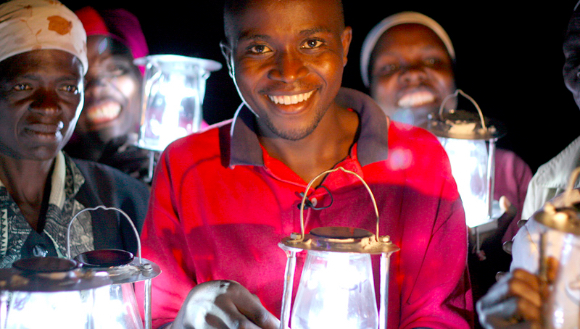
Mobile payments have broken down major barriers to solar energy. High upfront capital costs can now be spread over multiple small payments. This Pay as You Go (PAYG) solar revolution is sweeping East Africa, particularly Kenya.
Rural populations that are largely off grid, are keen to kick their kerosene habit and enjoy the benefits of clean energy. Startups in Kenya are finding markets of every shape and size and eager rural households are snapping up more than 2,000 units a week.
ICT has a potentially powerful role to play in extending this revolution, and mobile networks can sustain a post-sales relationship that builds trust between consumers and new firms like mKopa and SunTransfer.
As Kenya goes, so goes the continent? Or does the combination of high mPesa penetration and mobile savvy consumers make East Africa a unique case?
Please RSVP now for the first Technology Salon Lusaka to dig deep into the PAYG solar opportunities in Zambia and other SSA countries. Our discussion will be lead by three noted thought leaders:
You are invited to join in the lively conversation – all participants will have an equal chance to explore questions like:
- What is the potential for PAYG solar in Zambia and similar markets?
- Where are the opportunities in off-the-shelf household lighting products?
- How can development actors speed up solar uptake?
- Who is leading the development of complimentary solutions such as support, maintenance, and payments infrastructure?
Please RSVP now to join us at Population Council. We start promptly, and will have hot coffee, tea and treats for morning rush but seating is limited. So RSVP now to be confirmed for attendance. Once we reach our 30-person capacity there will be a waitlist.
1st Technology Salon Zambia
8.00 – 10.00 a.m.,
Thursday, March 26th 2015
Lusaka, Zambia
RSVP is required for attendance
 The Technology Salon™ is an intimate, informal, and in person, discussion between information and communication technology experts and international development professionals, with a focus on both:
The Technology Salon™ is an intimate, informal, and in person, discussion between information and communication technology experts and international development professionals, with a focus on both:
• technology’s impact on donor-sponsored technical assistance delivery, and
• private enterprise driven economic development, facilitated by technology
 BongoHive
BongoHive